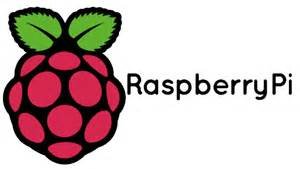
Until recently, the trusty old Commodore 64 computer held the distinction of being the "third most popular general computing platform" of all time. While third place might not sound like a big deal, consider how briskly Mac and Windows PC's have sold over the years and you can see what a huge feat achieving the third place spot truly is. Indeed, the Commodore 64 wasn't only the entry point into the world of computers for a lot of us, but it holds a beloved spot in our hearts for all its quirkiness and charm. In the hearts of many users, nothing could replace the Commodore 64.
Except for the Raspberry Pi.
The Raspberry Pi is a small, cheap, single board computer that's been on sale for a few years now. It's cheap (between $5 and $35 USD) and amazingly useful. It runs various distributions of the Linux operating system, Microsoft supports it with a specialized version of Windows 10, and is used by hobbyists and professionals alike to create amazingly interesting projects. Since its introduction 5 years ago, the computer has sold just north of 12.5 million units, beating Commodore and displacing the beloved computer for third place in sales.
According to Eben Upton, founder of the Raspberry Pi Foundation, the Raspberry Pi 3B accounts for the majority of sales, coming in at a respectful 30%, but all of the other models, including the $5 Pi Zero, are selling briskly. In fact, speaking of the Pi Zero, it sold an impressive 100,000 units in the first four days after its release! Not bad for a $5 computer coming from a project that originally intended to make only 10,000 to 20,000 boards in total.
In the electronics and computer industry, those of us who've been around a long time tend to lament that younger generations don't want to get their hands dirty with "do-it-yourself" projects. They want tech that "just works" and don't really care if they understand how it works or not. But, looking at sales for the Pi, it's getting harder and harder for me to believe that. Sure, there are those who really don't want to know the 'how', but all is not lost. I suspect that, as long as there are options like the Pi, future engineers, developers, and hobbyists, will always beat a path to vendors doors.
Things like records are meant to be broken. That is a fact. I don't put a lot of faith in this type of record though since we are looking at at least two released versions of the Raspberry Pi and a hell of a lot easier on the pocketbook price point.
Commodore sold as many C64's as they did with a high price point, no Internet to get word of mouth going, and they had nothing but an uphill battle against the computing juggernaut that is known as IBM.
I am not taking away from the Raspberry Pi and its success, just saying that it was definitely tougher to reach #3 in sales back before the Internet.